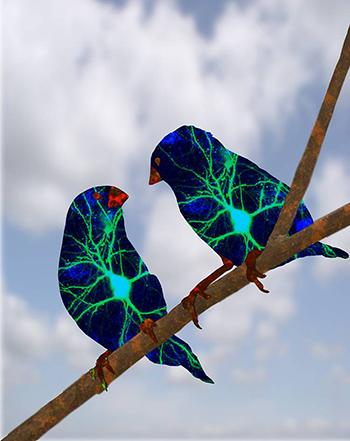
Youngsters learn many important behaviors by imitating adults. But young learners are selective in who they copy, and scientists don't understand how they choose the right teacher.
Young male zebra finches must learn to copy the song of an adult tutor in order to ultimately attract a mate. Researchers already knew that juveniles don't copy songs played through a loudspeaker or sung by other species of birds. Now, findings from Duke University scientists show how the juvenile birds identify the right teacher.
The study, which appears early online Oct. 17 in the journal Nature, reveals that being near a singing tutor activates connections between a social area of the young bird's brain and the part of the brain responsible for the juvenile's ability to sing. If those connections aren’t activated, a young finch fails to copy the tutor’s song.
"In humans it’s clear that being able to learn species-specific behaviors like speech is really important," said Richard Mooney, the George Barth Geller professor of neurobiology. “Birdsong is one of the very few examples in the animal world where a behavior is transmitted from one generation to the next by imitation as opposed to genetic inheritance." The fact that birds learn “speech” as we do gives researchers the opportunity to use the animals to study how a young learner memorizes someone else's actions and then eventually learns to imitate those actions.
Read entire article at Duke Today